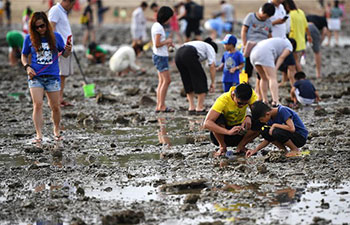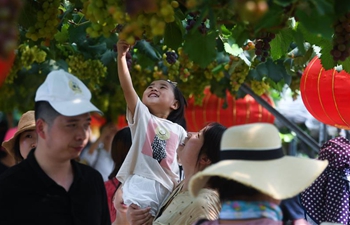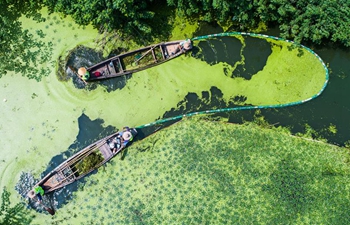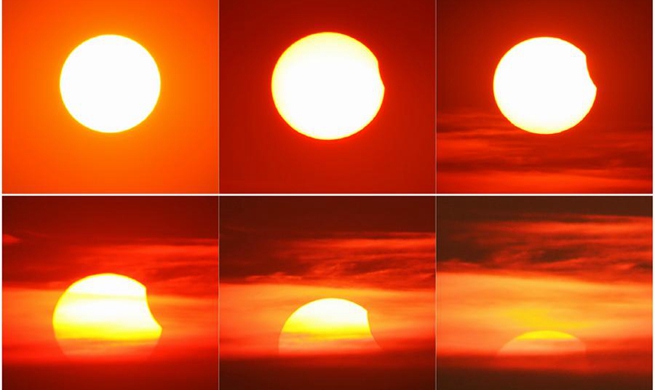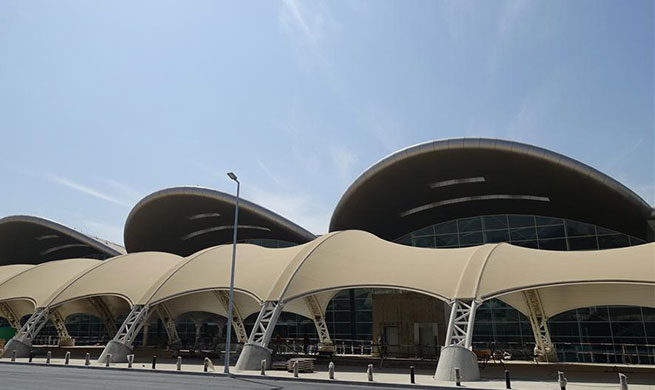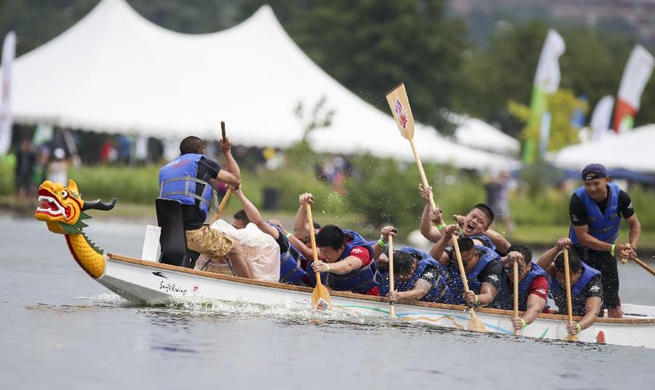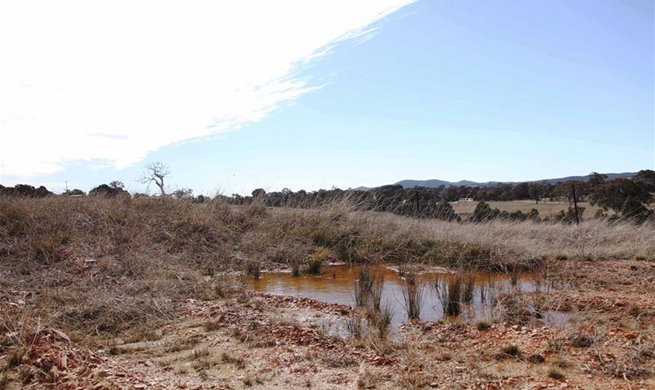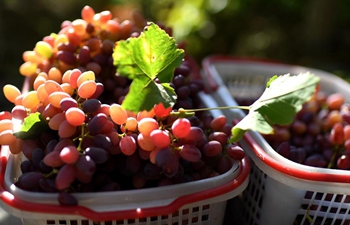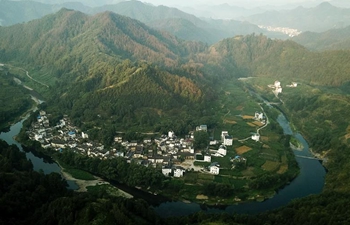by Xinhua writer Gao Wencheng and Lyu Qiuping
CHANGSHA, Aug. 12 (Xinhua) -- At 7 a.m. when the sun starts to beat down, Zhan Qiuming, 50, returns from his farmland, puts away his hoe and straw hat, and picks up his brush.
With quick strokes on the paper, he paints some mountain rocks before passing the paper to the person beside him.
He and dozens of other villagers, young and old, men and women, form three groups on a "production line" for Chinese painting, who are assigned to paint rocks and trees and color the paintings.
Zhan is from Xiaohe Township, a beautiful but impoverished mountainous area in central China's Hunan Province.
The Xiaoxi River, which runs through the township, serves as the primary drinking water source to the provincial capital of Changsha. To preserve the ecological environment, industrial development in the region is highly restricted.
While China has striven to revitalize the countryside, farmers in the township have turned to painting landscapes of their hometown to make their fortune.
Zhan had once wanted to be a professional painter when he was a teenager, but poverty left him no choice but to work in the fields, which, in his parents' words, was more "realistic."
So when he heard the newly-opened art studio at his village was recruiting last July, Zhan signed up immediately.
The studio was started by Lian Yizhang, an oil painter and art dealer who used to be based in Changsha.
"Xiaohe Township is beautiful for landscape painting and quiet enough to concentrate on the art," said Lian.
With the support of the local government, he decided to open the first studio in the least developed village in the township at the end of 2016.
He said a Chinese-style landscape painting could be divided into three steps: painting mountain rocks, trees, then adding color.
He invited professional painters to train villagers and divided them into three groups for the three procedures.
Skilled painters can finish one part of the "art production line" in 40 minutes. The three steps can be done in less than two hours.
When other farmers were relaxing on hot or rainy days, Zhan used this time to learn how to paint from his teachers and teaching videos.
Since last winter, Zhan has focused more on his work at the studio, cutting the acreage of his rice farm in half. "The more I paint, the better I get at it and the more salary I can earn," he said, who now earns an average monthly income of about 3,000 yuan (about 438 U.S. dollars).
In the township, there are six art studios in the villages, bringing nearly 430 jobs to local villagers, according to the local government.
The traditional Chinese paintings created by the production line are collectively bought from the villagers and sold to markets as far away as Southeast Asia, with sales reaching 4.8 million yuan in the first half of this year alone.
"The quality of ours is as good as that of any other supplier, while our prices are not high," Lian said. "Overseas Chinese feel natural to Chinese arts and landscapes."
The government is also working to attract more professional artists to work there and more tourists to visit the township known for its natural landscape and farmer paintings.
On the production lines, most of the villagers paint the landscape just to make a living, but some of them dream bigger.
Wang Hua, 35, used to work at a local fireworks factory, which she said was "sleazy and sweaty." She often had to work extra hours and came home late and tired.
"I enrolled in the painting course because I wanted to spend more time with my family, especially my son," Wang said.
Now, Wang paints at home, earning more than 4,000 yuan a month. She also has time to accompany and take care of her family.
"At the beginning, I was in it for the money, and now I am enjoying it." In addition to the work of copying teachers' designs, Wang also creates her own works and style like "a real artist."
"I will continue to improve my painting and hope to one day make it my career," she said.




